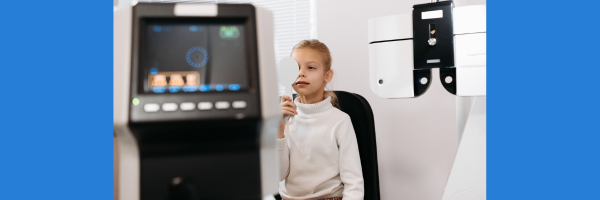What is Glaucoma?
This World Glaucoma Week (7 – 13 March), Glaucoma Australia is encouraging Australians to get active about eye-health and ‘Treat Their Eyes’ to an eye test.
Two in 100 Australians will develop glaucoma in their lifetime, and, even more worrisome, up to 50% of people with glaucoma don't know they have it!
But, what is Glaucoma?
Glaucoma is the name given to a group of eye diseases where vision is lost due to damage to the optic nerve. The loss of sight caused by glaucoma is usually gradual and a considerable amount of peripheral (side) vision can be lost before there is an awareness of any problem.
The fluid inside your eye, called aqueous humor, usually flows out of your eye through a mesh-like channel. If there is damage to this channel, or if the eye is producing too much fluid, there is more liquid than the eye can adequately drain causing an increase of pressure inside the eye. The increase of intraocular pressure (IOP) begins to damage the optic nerve at the back of the eye and this damage to the cells of the optic nerve results in irreversible vision loss.
What are the symptoms of Glaucoma?
While there are different types of glaucoma, Primary Open-Angle Glaucoma (POAG) is the most common, accounting for 90% of glaucoma cases in Australia. Nicknamed the 'sneak thief of sight' there are no obvious symptoms in the early stages of POAG. Damage progresses slowly and destroys vision gradually, starting with the peripheral vision. This early vision loss often goes unnoticed until a significant amount of damage to the optic nerve has already occurred.
On the other hand, Acute Angle-Closure Glaucoma can cause severe eye pain associated with nausea and vomiting, headache, watery eyes, sudden onset of blurred vision or seeing halos around light. This is a medical emergency and immediate treatment is required.
Who is at risk of developing Glaucoma?
You may have a higher risk of developing glaucoma if you:
- have a family history of glaucoma
- have high eye pressure
- are aged over 50
- are of African or Asian descent
- have diabetes
- are short or long sighted
- have been on a prolonged course of cortisone (steroid) medication
- experience migraines
- have had an eye operation or eye injury
- have a history or high or low blood pressure
- experience obstructive sleep apnoea
To see if you are at risk, click here to take a short quiz with Glaucoma Australia.
Treat yourself to an eye test and protect your sight!
While vision loss due to glaucoma can’t be restored, early diagnosis and treatment can delay or halt the progression of the disease. That is why it’s so important to detect the problem as early as possible. Treat yourself and book your next comprehensive eye examination with us today.
Danielle Bauer
Optical Dispenser
Somerville & Merrin
Designed by Little Pig Consulting
Somerville and Merrin
Designed by Little Pig Consulting



